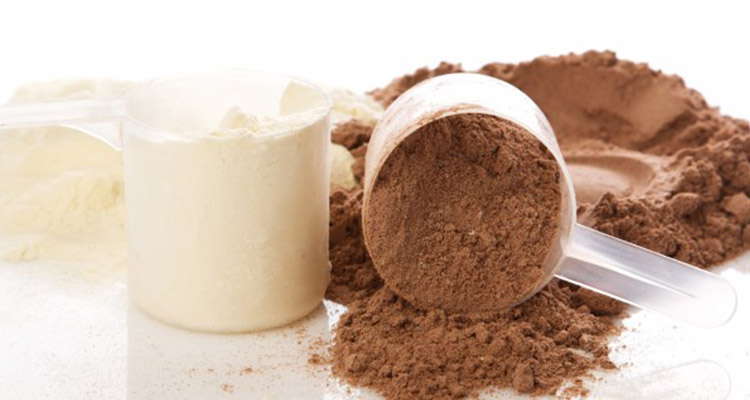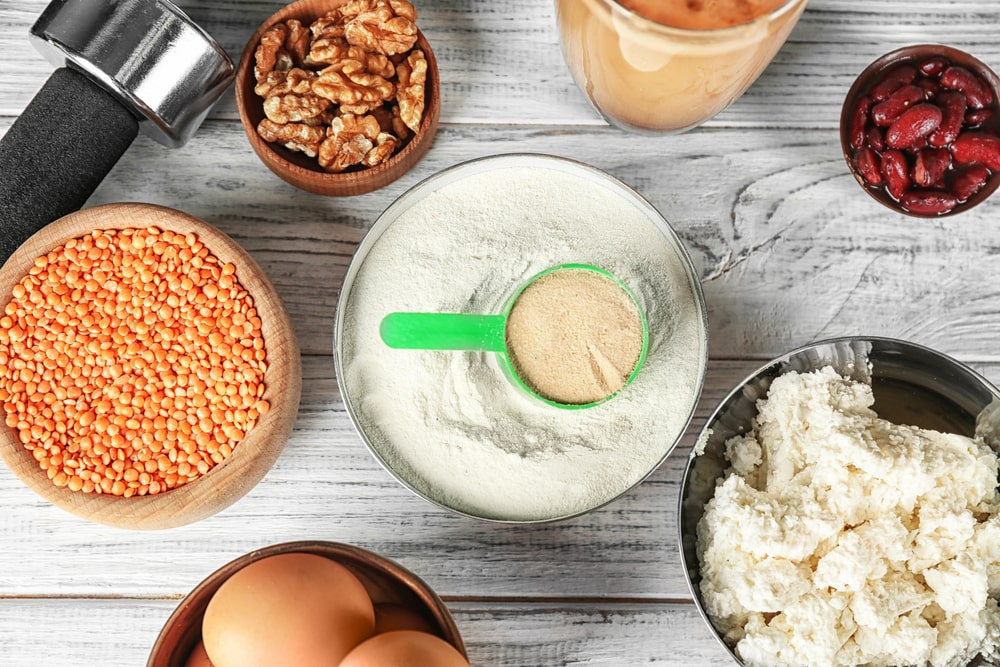In the ever-evolving world of fitness and nutrition, one topic that frequently arises is protein supplementation. Whether you’re a beginner starting your fitness journey or a seasoned athlete looking to optimize performance, understanding the supplement 101 available can be a game changer. Proper protein intake is essential for muscle recovery, growth, and overall health. In this comprehensive guide, we’ll break down different types of protein supplements, discuss their benefits, and guide you on how to incorporate them into your routine effectively. Additionally, we’ll highlight products that are built for battle in the fitness arena, emphasizing their role in your nutrition strategy.

Why Protein Matters
Before diving into the different types of protein powders, it’s essential to understand why protein is so critical for your body.
Role of Protein in the Body
Protein is one of the three macronutrients (alongside carbohydrates and fats) that your body needs to support its various functions. Here are some key roles protein plays:
- Muscle Repair and Growth: Protein is vital for repairing tissues and building new muscle fibers, particularly after exercise. This is crucial for anyone aiming for a defined physique.
- Satiety and Weight Management: Protein can help you feel fuller for longer, making it a key component for those looking to lose weight.
- Hormone and Enzyme Production: Many hormones and enzymes are made of proteins, which are essential for metabolic processes.
- Energy Source: While carbohydrates are your body’s primary energy source, protein can be utilized for energy when carbohydrate stores are low.
Supplements 101 Daily Protein Intake
The Recommended Dietary Allowance (RDA) for protein varies based on age, sex, and activity level. However, for those who engage in regular physical activity:
- General Recommendations: Aim for 0.8 grams per kilogram of body weight for sedentary individuals.
- Athletes and Those in Training: Protein needs increase significantly to about 1.2 to 2.0 grams per kilogram, depending on the intensity of training.
This guideline can help you manage your daily protein intake, whether you’re using powders or whole food sources, keeping you on the path to being built for battle in your fitness pursuits.

Types of Protein Powders
With a plethora of protein powders on the market, making the right choice can be daunting. Below are the most common types:
#1 Whey Protein
- Description: Whey protein is derived from milk and is the most widely used protein supplement. It comes in three main forms: whey protein concentrate, isolate, and hydrolysate.
- Benefits:
- Fast absorption makes it perfect for post-workout recovery.
- High in branched-chain amino acids (BCAAs), particularly leucine, which is crucial for muscle protein synthesis.
- Suitability: Ideal for those who are not lactose intolerant and need quick recovery support after workouts, helping you feel built for battle against your fitness goals.
# 2 Casein Protein
- Description: Like whey, casein is also a milk-derived protein, but it digests more slowly.
- Benefits:
- Provides a slow and steady release of amino acids, making it beneficial for nighttime use or prolonged periods without nutrition.
- Suitability: Great for those looking to stave off muscle breakdown during extended fasting periods, like overnight, ensuring you stay built for battle even while you sleep.
# 3 Egg Protein
- Description: Made from egg whites, egg protein is a lactose-free alternative.
- Benefits:
- Highly digestible and contains all essential amino acids. Great for muscle repair and growth, aligning with the ethos of being built for battle.
- Suitability: Ideal for lactose-intolerant individuals and those seeking a complete protein source.
#4 Soy Protein
- Description: Derived from soybeans, this plant-based option is a complete protein source.
- Benefits:
- Supports muscle growth and can be heart-healthy. Contains phytoestrogens that may benefit overall health.
- Suitability: Suitable for vegans and those looking for a non-dairy protein source to help them stay built for battle.
#5 Pea Protein
- Description: This protein powder is sourced from yellow peas and is popular among vegans.
- Benefits:
- Hypoallergenic and easily digestible. Rich in BCAAs and beneficial for muscle retention.
- Suitability: Great for vegetarians and people with allergies or intolerances to dairy or gluten, helping them remain built for battle.
#6 Brown Rice Protein
- Description: A plant-based protein made from brown rice, often combined with pea protein for a more complete amino acid profile.
- Benefits:
- Benefits: Brown rice protein is an excellent option for providing sustained energy and contains a variety of essential amino acids. While it may be lower in lysine compared to other proteins, combining it with pea protein can create a balanced amino acid profile suitable for muscle growth. This combination supports individuals who aim to stay built for battle while adhering to a vegan or vegetarian diet.
#7 Blended Protein Powders
- Description: These powders often mix various protein sources, combining whey, casein, egg, pea, and rice protein.
- Benefits:
- By integrating different types of protein, blended powders can provide both fast-acting and slow-digesting amino acids, supporting muscle repair and growth throughout the day.
- The diversity of protein sources targets various amino acids, ensuring balanced nutrition.
- Suitability: Perfect for those who want a comprehensive protein solution and strive to be built for battle through muscle maintenance and recovery.

Choosing the Right Protein Powder For Your Goals
When selecting a protein powder, consider your fitness goals, dietary preferences, and any medical requirements you may have. Here are key factors to help guide your decision:
#1 Type of Workouts
The type of protein you choose should align with your workout regimen. If you’re involved in high-intensity strength training or frequent workouts, a whey protein, known for its rapid absorption characteristics, may be the best choice to aid in immediate recovery. This ensures your muscles are primed and ready for the next workout, keeping you built for battle against fatigue.
Conversely, if you’re focused on endurance activities, consider casein protein, which provides a sustained release of amino acids to support your needs over an extended period, ensuring you are adequately fueled throughout your training sessions.
#2 Dietary Restrictions
Evaluate any dietary restrictions you may have. If you are lactose intolerant or vegetarian, opt for plant-based proteins or egg protein, both of which contribute to keeping you built for battle without sacrificing your dietary principles. For those with nut allergies, ensure you choose protein sources that avoid cross-contamination to maintain your health.
#3 Flavor and Mixability
Taste and mixability are crucial in determining your satisfaction with a protein powder. Various brands offer different flavors, so experimenting with flavors you may enjoy can encourage dietary adherence and improve your overall intake. A product that mixes well in water, milk, or smoothies ensures you can incorporate it into your diet seamlessly, keeping you motivated and built for battle in your nutritional efforts.
#4 Ingredient Quality
Look for protein powders with minimal additives and fillers. High-quality protein powders typically contain fewer ingredients and focus more on their primary protein source. Avoid those with excessive sugars, artificial flavors, or preservatives. Choosing a clean product allows you to stay built for battle by ensuring your body gets the best nutrition possible, free from unnecessary chemicals.
How to Incorporate Protein Powder into Your Routine
Now that you have chosen a suitable protein powder, here are practical ways to incorporate it into your daily routine:
#1 Post-Workout Recovery
Consuming protein shortly after your workout is crucial for muscle recovery. Mix your chosen protein powder with water or milk and consume it within 30 minutes of finishing your workout. This quick action can help support the muscle-rebuilding process, ensuring you stay strong and built for battle.
#2 Meal Replacement Shakes
If you struggle to meet your protein requirements through whole foods alone, consider using protein powder as part of a meal replacement shake. Combine protein powder with fruits, vegetables, and healthy fats (like nut butter or avocado) for a balanced meal that keeps your caloric intake aligned with your fitness goals and keeps your physique built for battle.
#3 Baking and Cooking
You can also add protein powder to your cooking. Stir protein powder into oatmeal, pancakes, or yogurt to increase protein intake without drastically changing the meal’s flavor profile. This approach ensures that your meals remain satisfying and nutrient-dense while being built for battle with essential proteins.
#4 Snacks
Protein powder can serve as a convenient snack option. Consider protein balls or bars made with protein powder. These snacks can keep your hunger at bay between meals and provide sustained energy, particularly beneficial for busy lifestyles and busy training schedules aimed at being built for battle.
Common Misconceptions About Protein Powders
“I Don’t Need Protein Powder if I Eat Meat”
While meat is an excellent protein source, meeting your daily protein needs through whole foods can sometimes be challenging, especially for those with busy lifestyles or who struggle to eat enough. Protein powders can offer a convenient solution to help supplement your dietary intake, ensuring you stay built for battle.
“Protein Powder Will Make Me Bulk Up”
Many people fear that using protein powders will lead to unwanted weight gain or a bulky physique. However, protein powder itself does not inherently cause weight gain. Instead, gaining muscle mass or changing your physique depends primarily on your total caloric intake and training program. If you consume protein powder as part of a balanced diet aligned with your fitness goals, you can achieve a toned and fit physique without bulking up unnecessarily. Proper timing and dosage personalized to your individual needs can help you maintain the body you desire while being built for battlein your fitness journey.
“All Protein Powders Are Created Equal”
Not all protein powders are of the same quality. Variations in protein sources, manufacturing processes, and added ingredients can impact the effectiveness and healthiness of a protein powder. High-quality protein powders often undergo rigorous testing for quality and purity, ensuring you’re getting what you pay for. When shopping for protein supplements, look for reputable brands that provide third-party testing and transparent labeling. This approach will help ensure your choice aligns with your goals of being built for battle.
“Protein Powders Are Only for Bodybuilders”
While protein powders are heavily marketed toward bodybuilders and athletes, they are suitable for anyone wishing to augment their protein intake. Whether you are an athlete, casual gym-goer, or someone pursuing a healthier lifestyle, protein powders can support your dietary needs and help you achieve your health goals. Incorporating protein into your daily routine can help facilitate recovery and muscle maintenance, making it an ideal option for anyone aspiring to be built for battle against physical challenges.

The Benefits of Integrating Protein Powder with Performance Supplements
Beyond basic protein intake, performance supplements can further enhance your results. Many athletes and fitness enthusiasts find that combining protein powders with performance supplements, such as pre-workout formulations (which may be described as built for battle), is an effective way to maximize gains and improve workout performance.
#1Enhanced Energy for Workouts
Using a superior pre-workout can provide additional energy and focus when you need it most. Products designed to help you tap into that energy include essential ingredients like caffeine, beta-alanine, and creatine. When you take the right pre-workout supplement, you can crush your training sessions, allowing you to recover faster afterward. Pairing your pre-workout with protein powder post-workout sets you up for effective recovery, ensuring you stay built for battle in future workouts.
#2 Improved Recovery
Performance supplements may also help decrease recovery time after strenuous workouts. Products that include BCAAs (branched-chain amino acids) not only support muscle recovery but also minimize muscle soreness. When you enjoy smaller increments of protein, such as a shake during or after the workout, along with your pre-workout routine, you optimally position yourself to be built for battle after every training cycle.
#3 Greater Muscle Synthesis
Combining protein with other amino acids within performance blends can encourage muscle synthesis, leading to greater muscle gains over time. By fuelling your body with both essential nutrients pre and post-workout, you can effectively enhance muscle growth and recovery, solidifying your efforts in being built for battle on the training floor.
#4 Strategic Use of Supplements
It’s essential to understand how to best utilize supplements in your regimen. For an effective cycle, consider the following:
- Pre-Workout: Take your pre-workout supplement about 30 minutes before your training session to ensure peak performance.
- During Workout: If your routine is particularly grueling or lengthy, you might consider BCAA supplements during your session for continued energy and recovery.
- Post-Workout: Aim to consume your protein powder immediately after your workout, ideally within 30 minutes. This timing can ensure your muscles receive critical nutrients for recovery.

Conclusion
Choosing the right protein powder is more than just selecting a flavor or brand—it involves understanding your goals, dietary preferences, and the complexities of protein sources. This informed approach allows you to optimize your nutritional strategies, enhance your workout recovery, and develop a physique that is built for battle.
By considering the various types of protein powders available—such as whey, casein, egg, and plant-based options—you can tailor your supplementation to meet your unique needs. Additionally, embracing the synergy between protein powders and performance-focused supplements can lead to peak results, ensuring you remain at the top of your game every day.
Key Takeaways
- Protein is Essential: Adequate protein intake is critical for muscle repair, growth, and overall health.
- Choose Wisely: Evaluate your dietary needs, workout regimen, and personal goals when selecting a protein powder.
- Incorporate Performance Supplements: Pre-workout and other performance supplements can further optimize your training and recovery.
- Stay Committed: Consistency is key. Ultimately, success relies not only on the supplements you choose but also on how you incorporate them into your lifestyle.
By following these guidelines, you can thrive in your fitness journey and ensure you’re built for battle, ready to tackle whatever challenges come your
-Terry Asher
Terry Asher
After changing his best friend’s life by helping him lose over 70lbs, dropping him down to an amazing 7% body fat, Terry was inspired to be a full-time internet trainer knowing he could do the same for many more. In 2010, Terry published his own diet and fitness e-book that can be purchased on this website. Let Terry help you change your body for the better!






Leave a Reply
You must be logged in to post a comment.